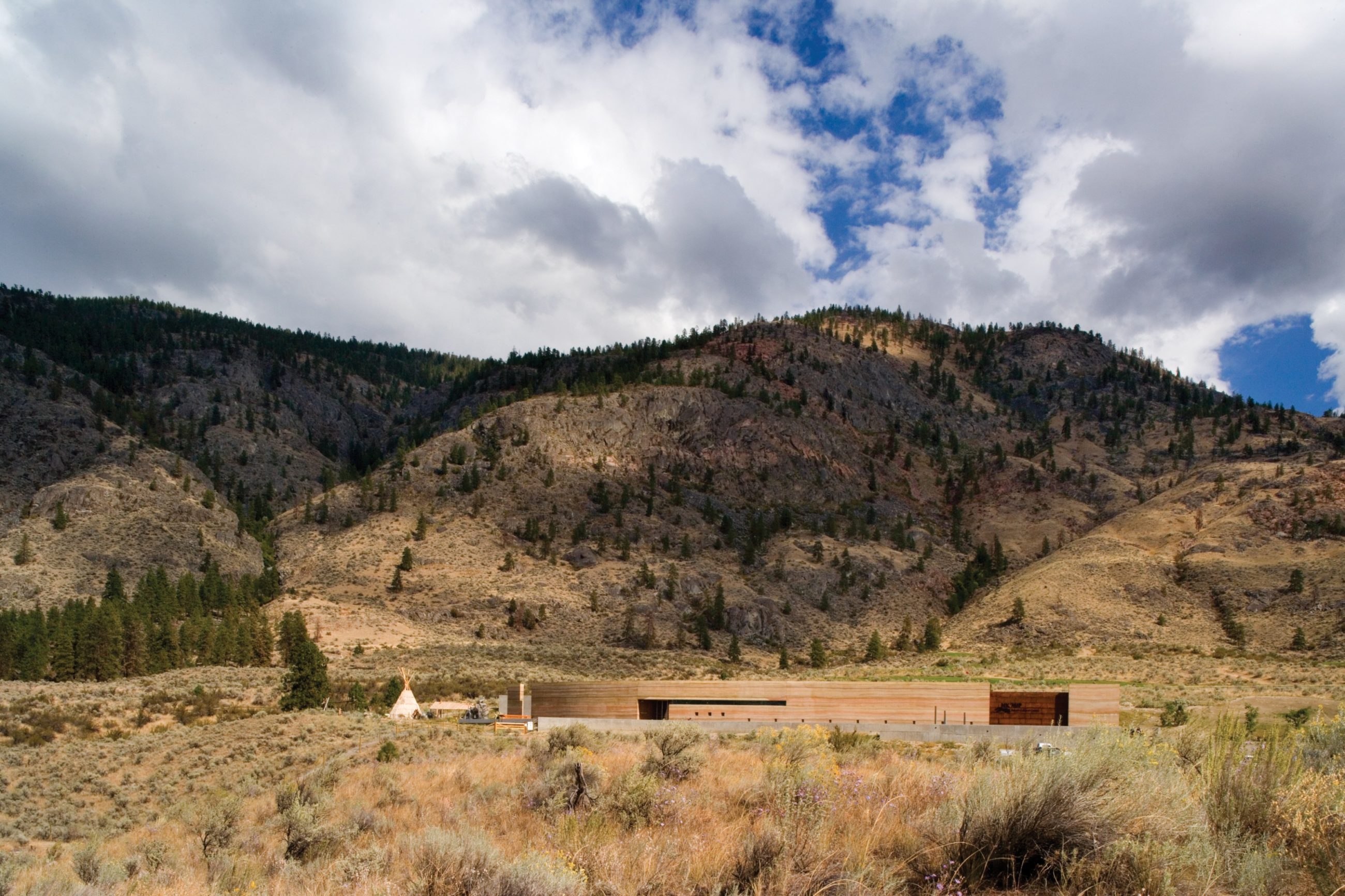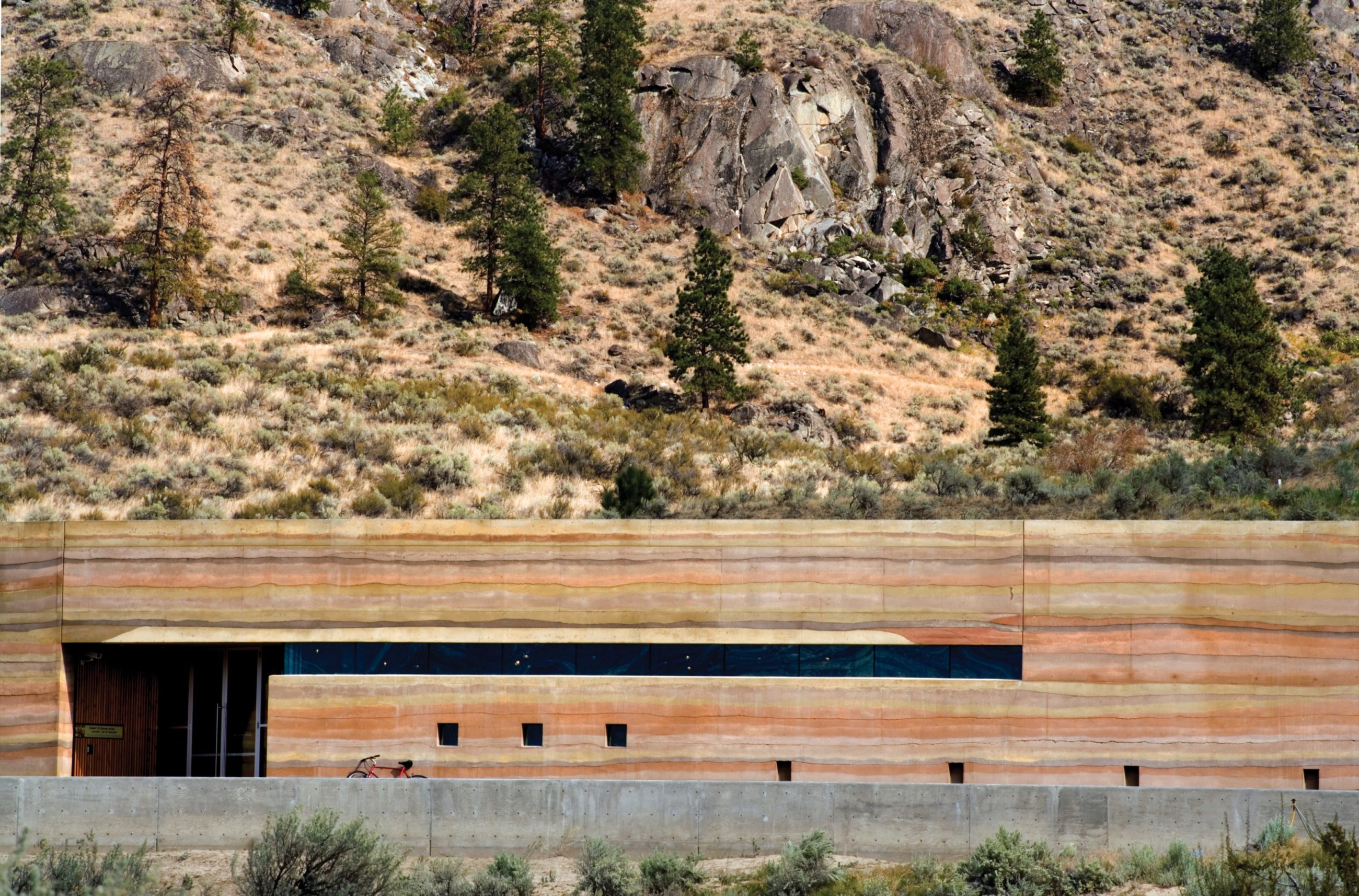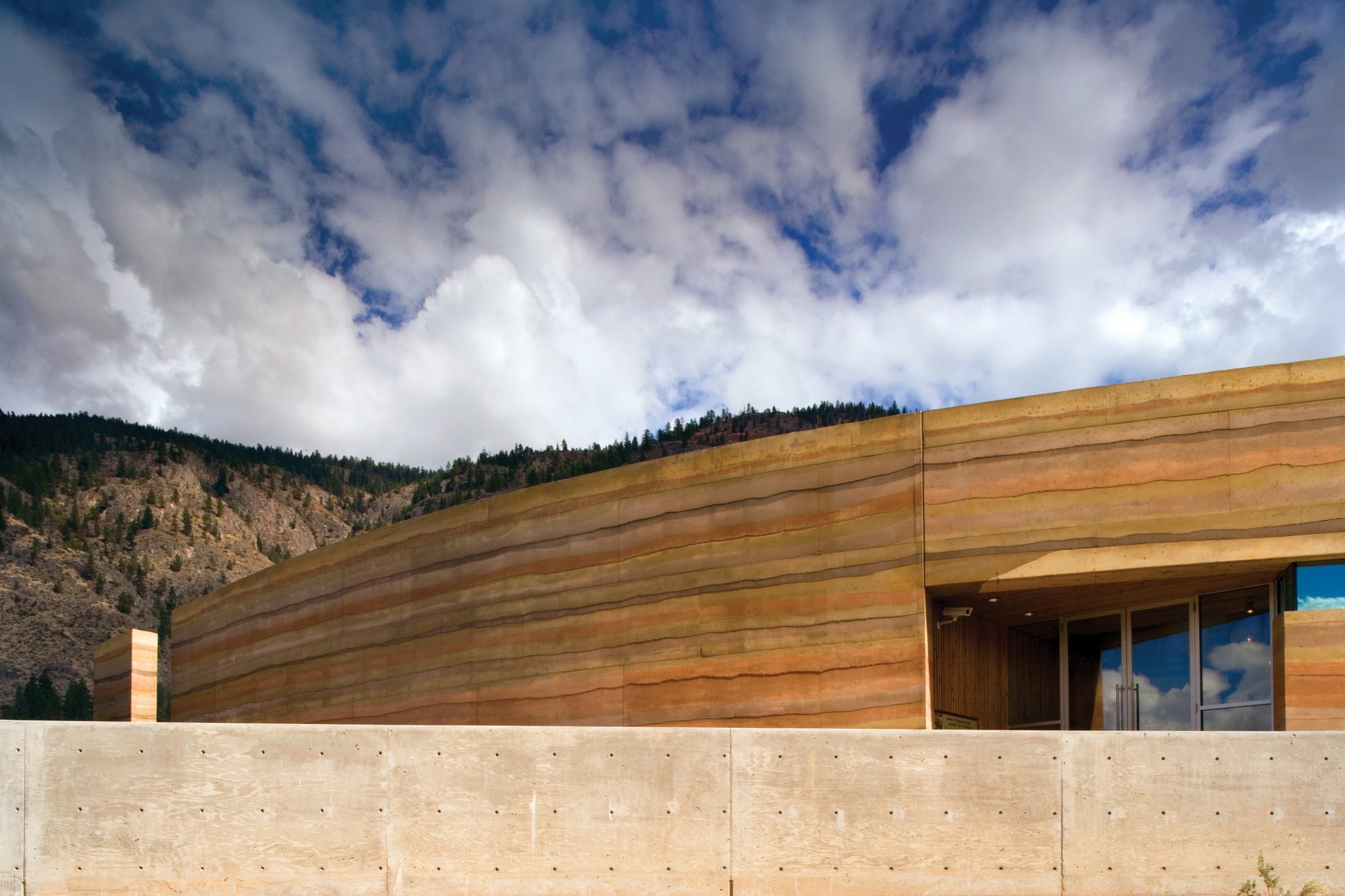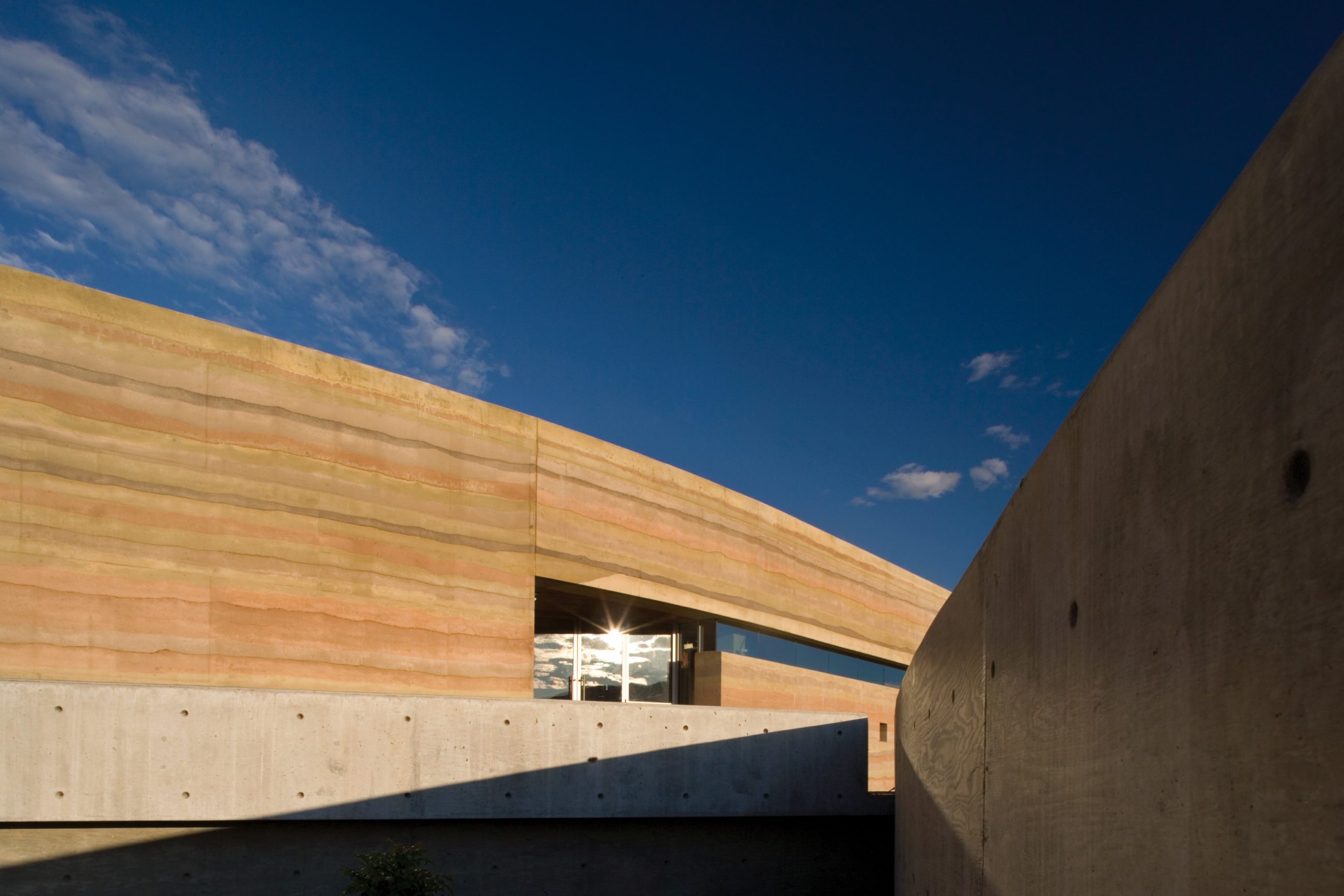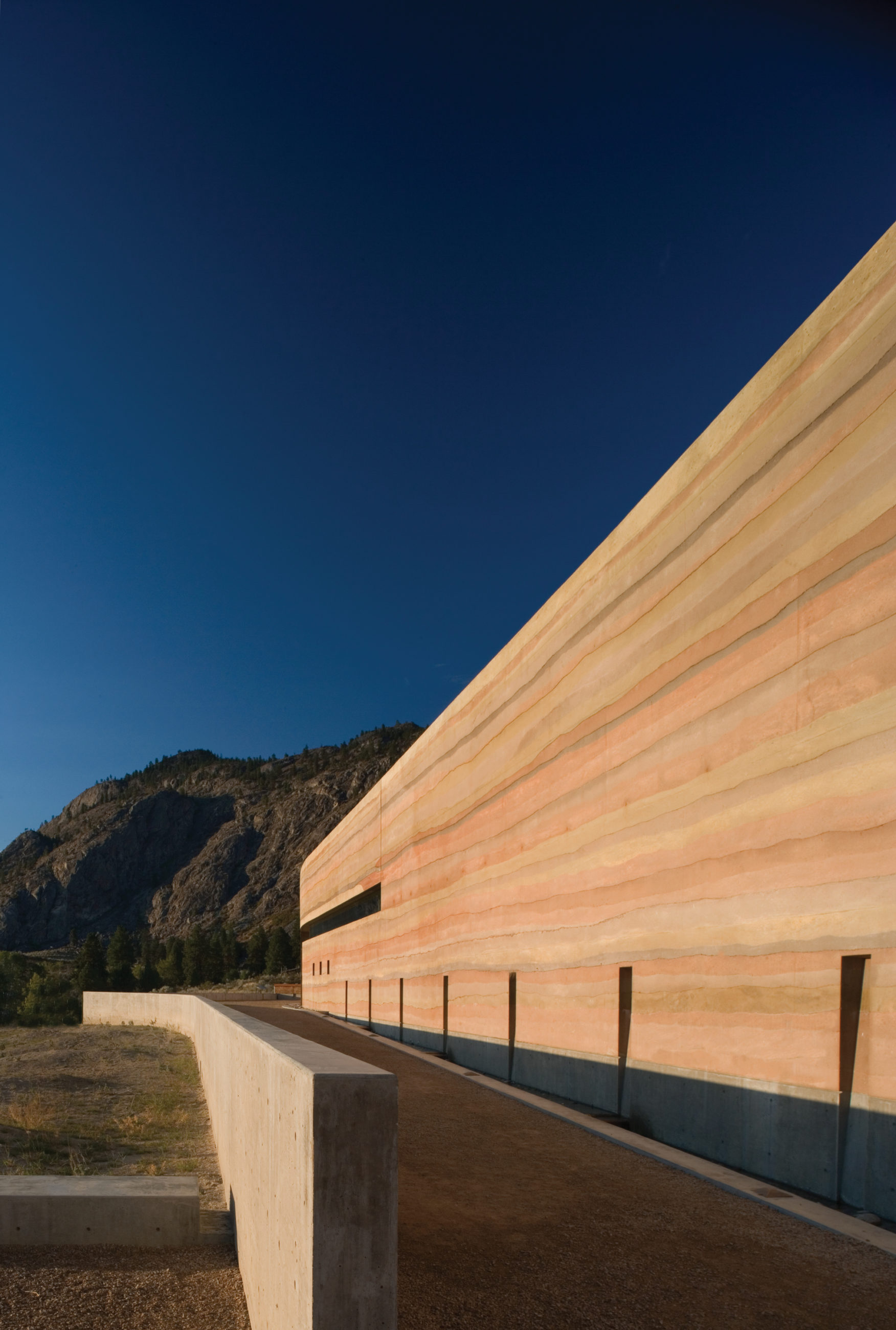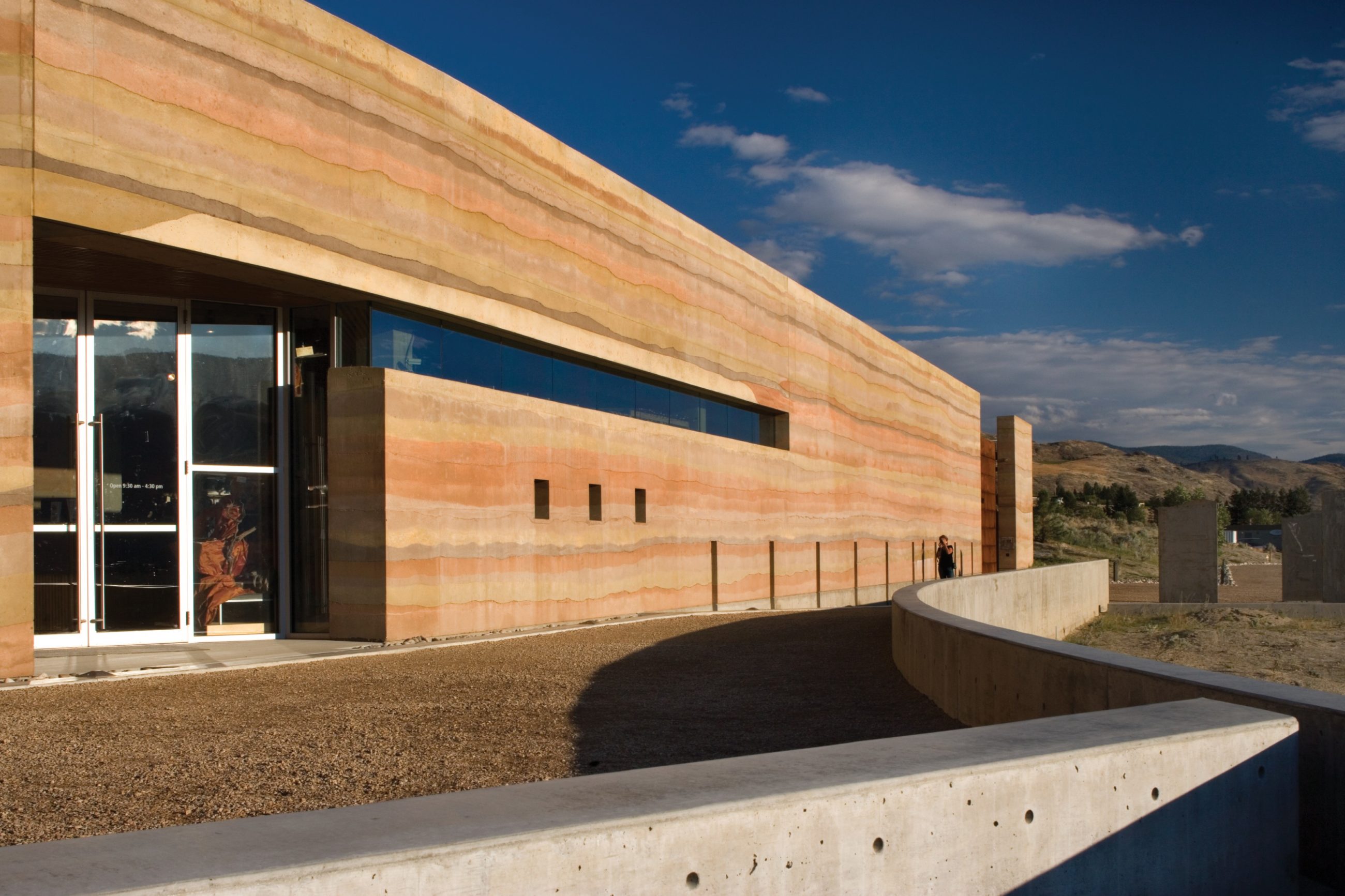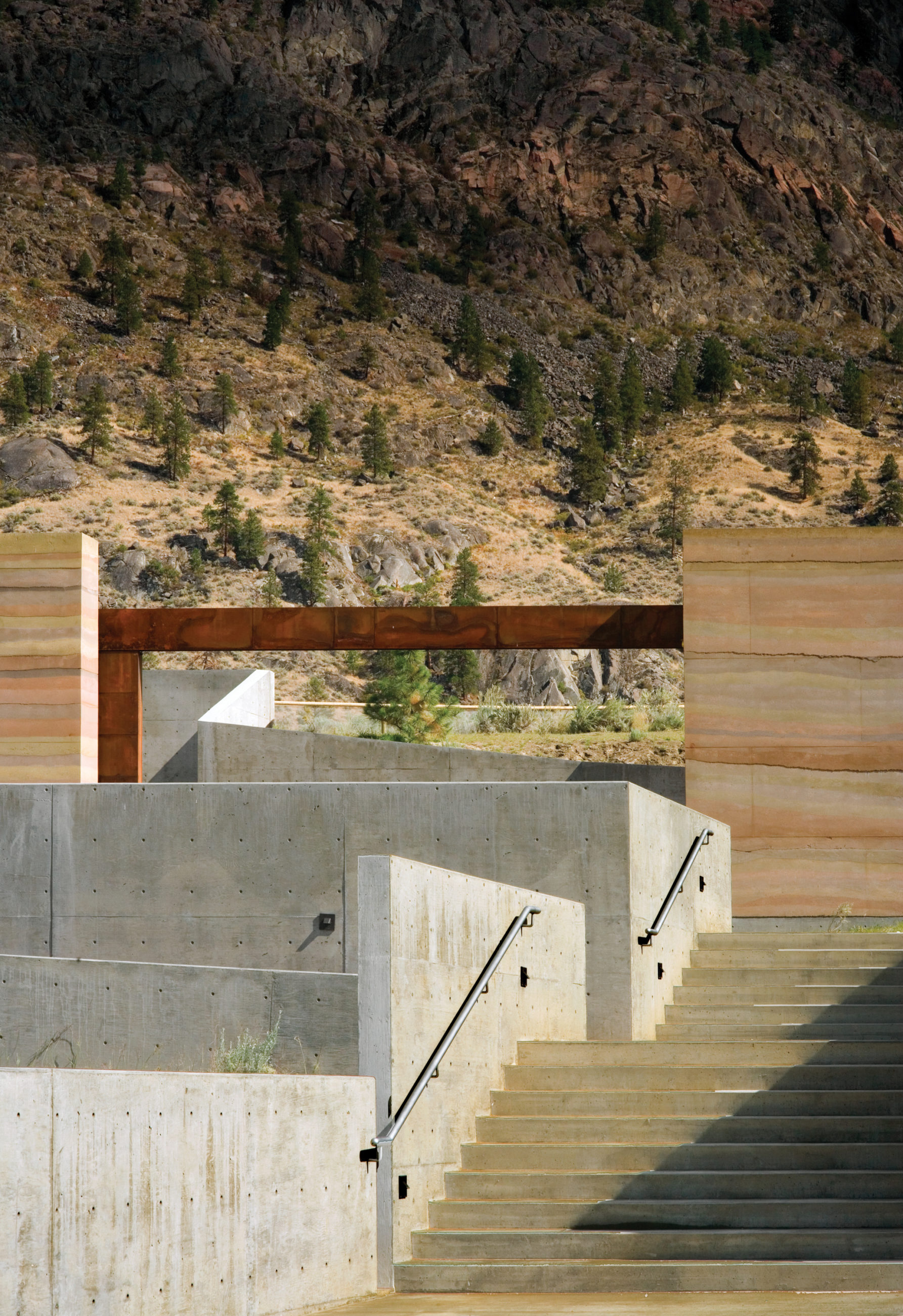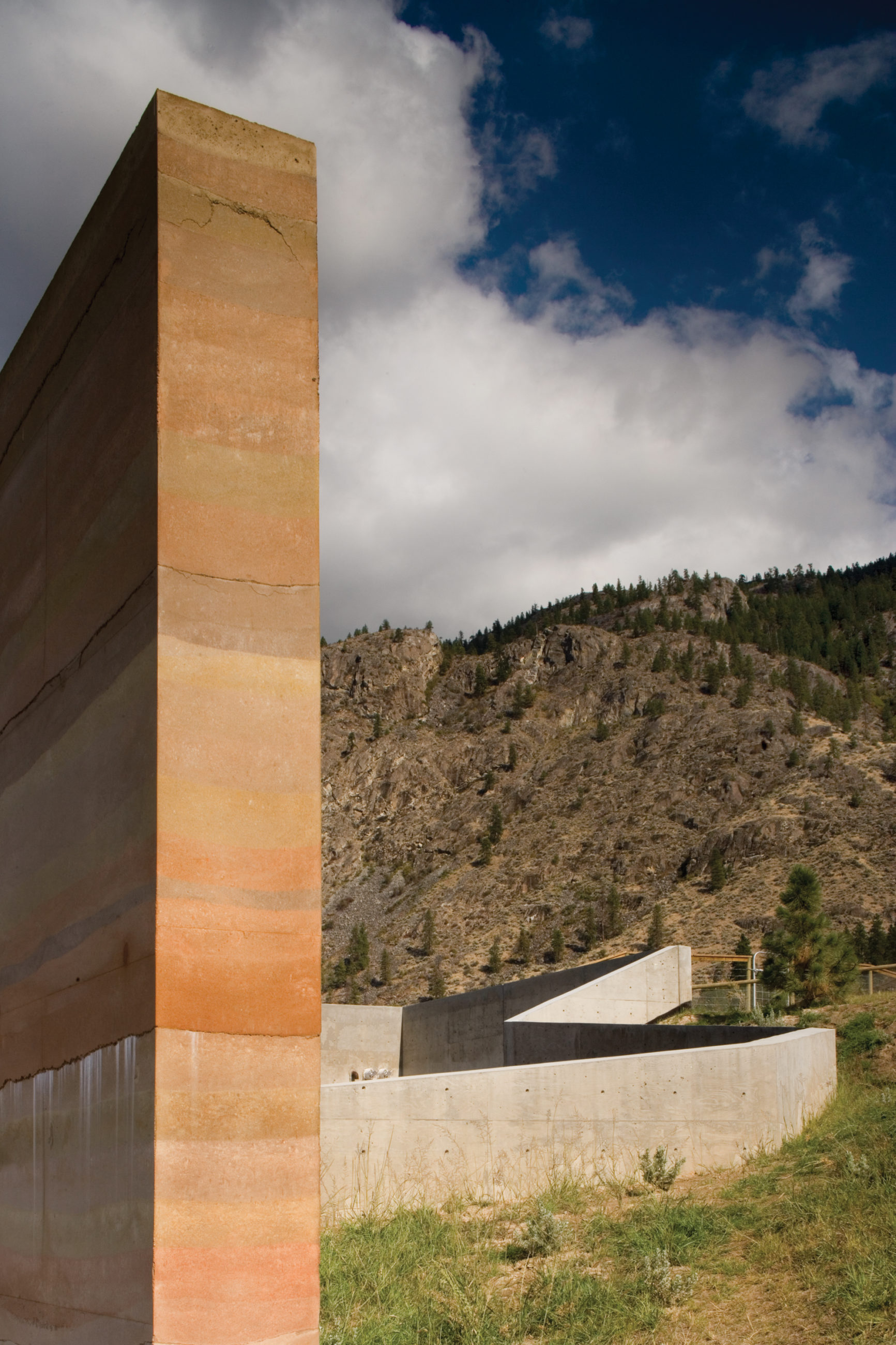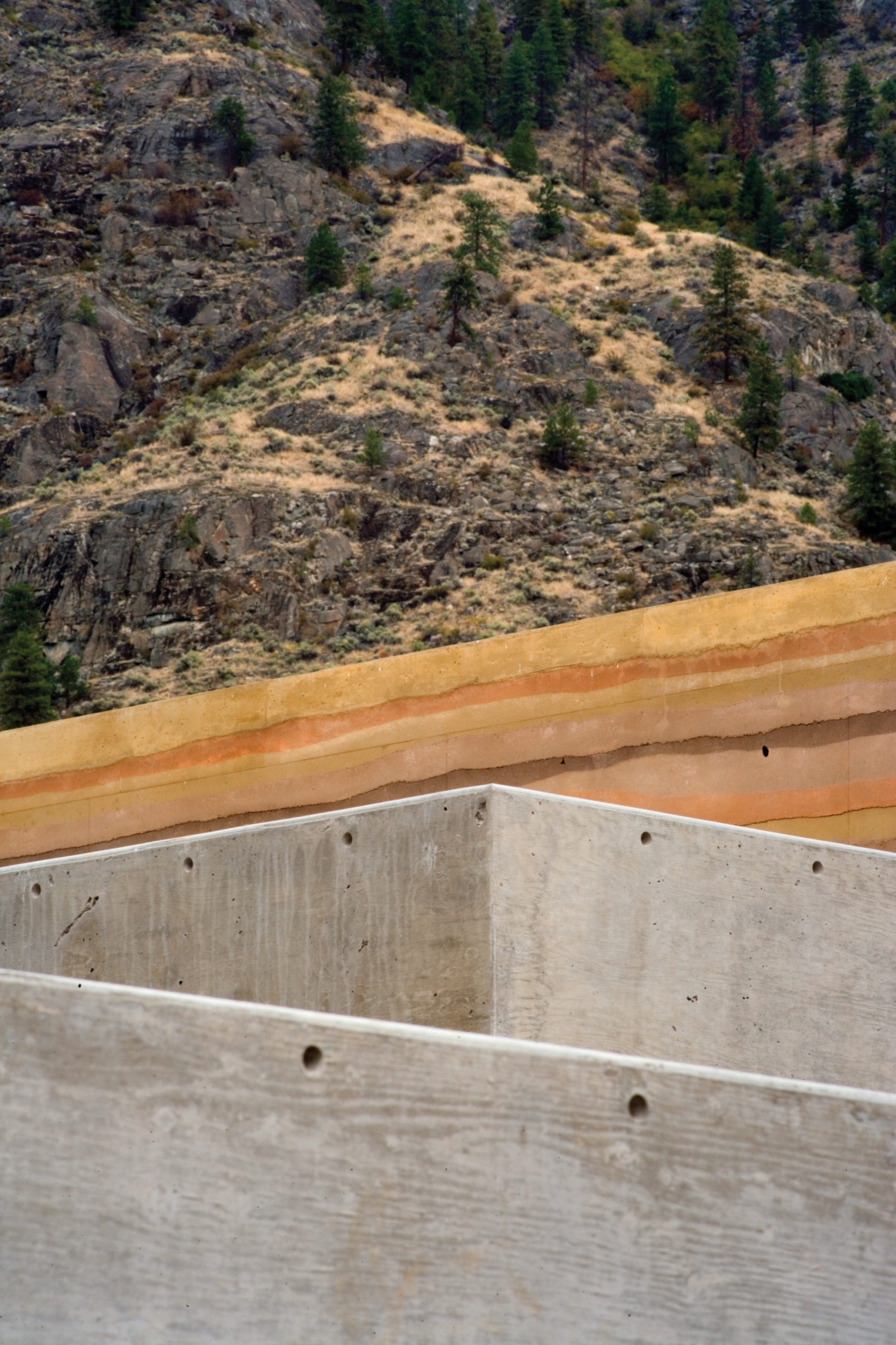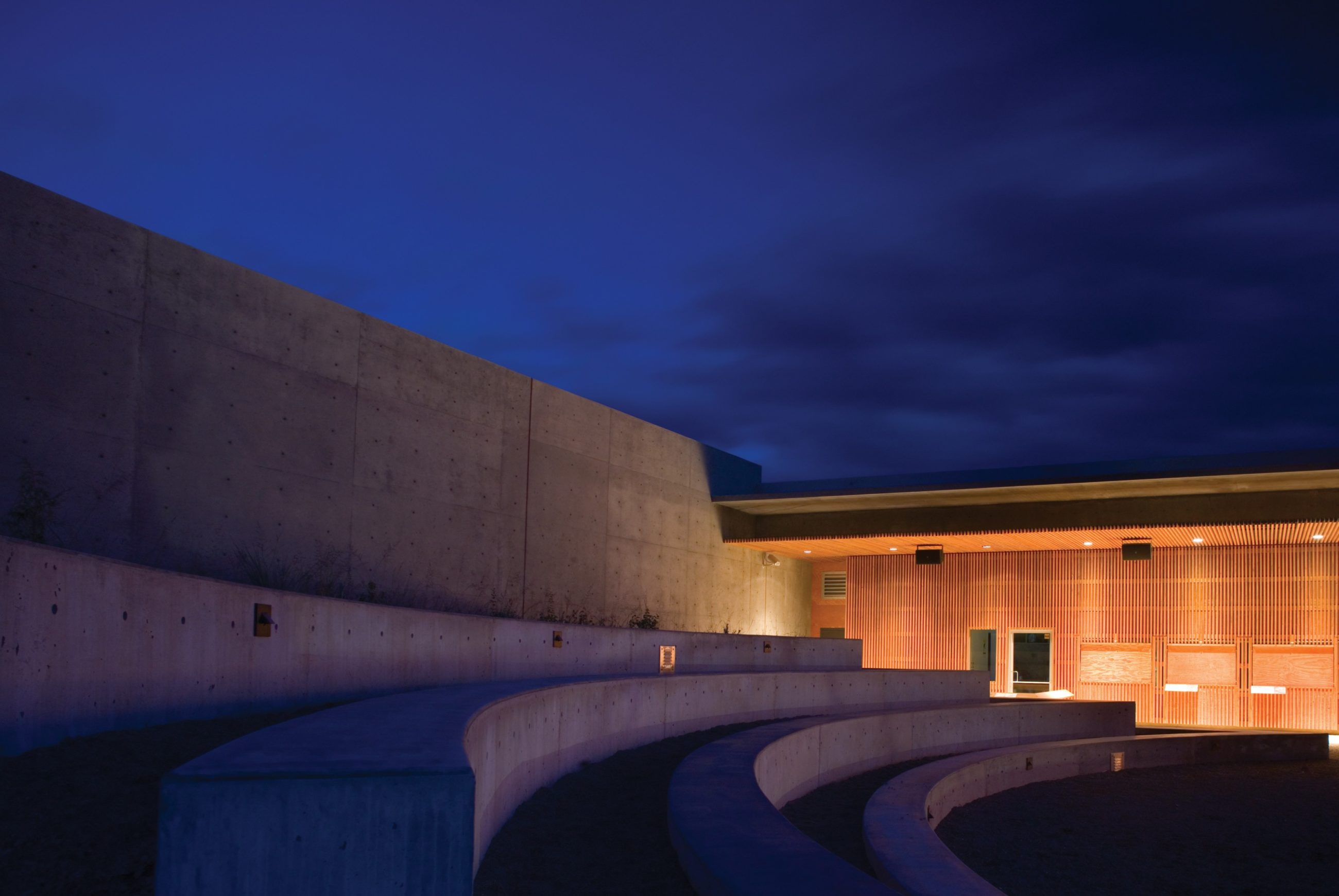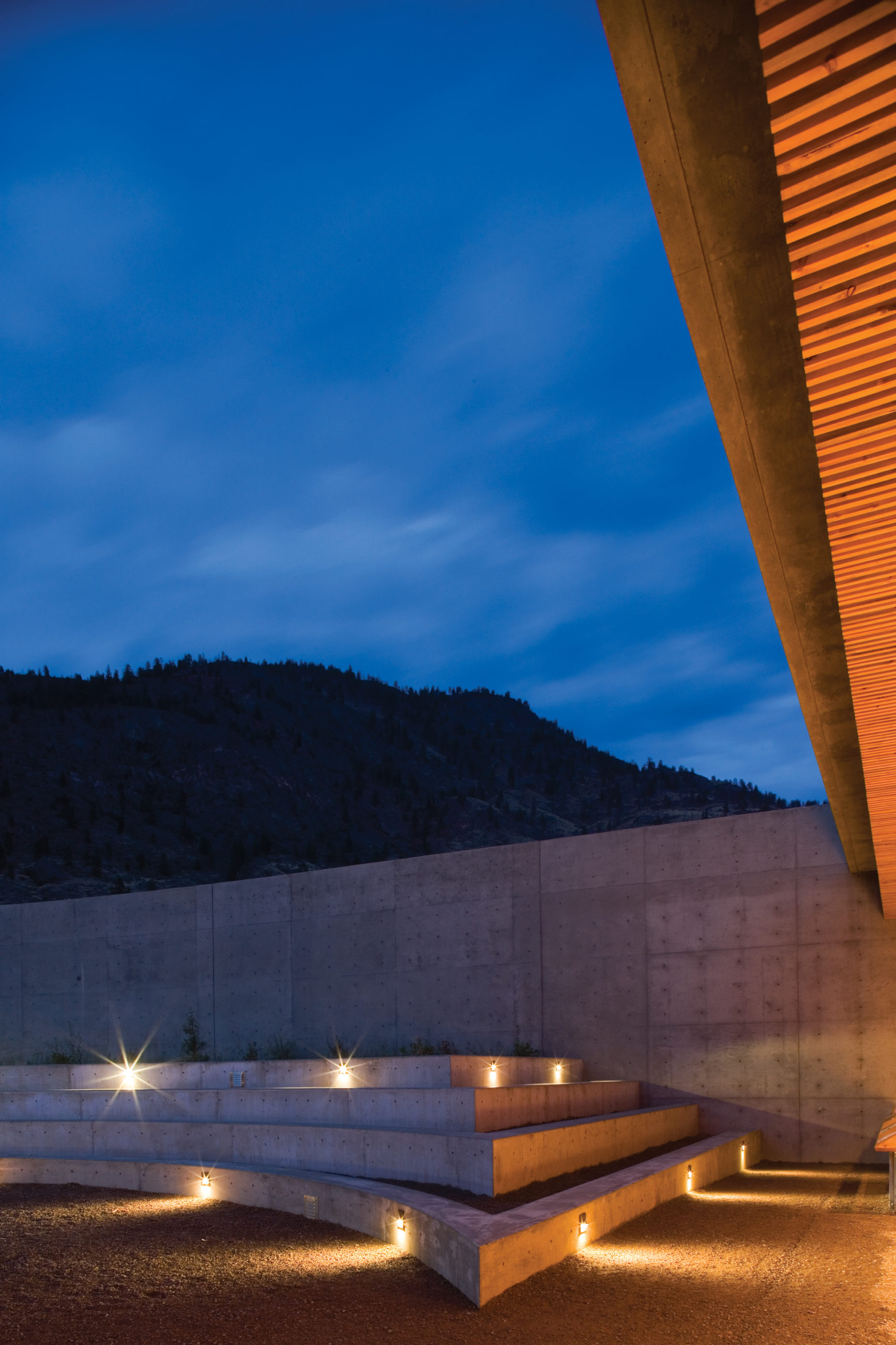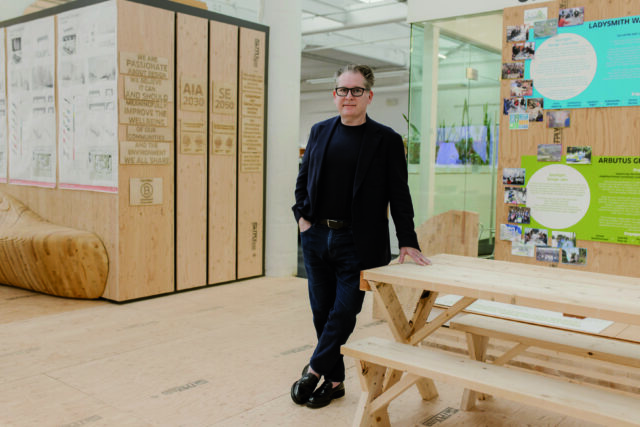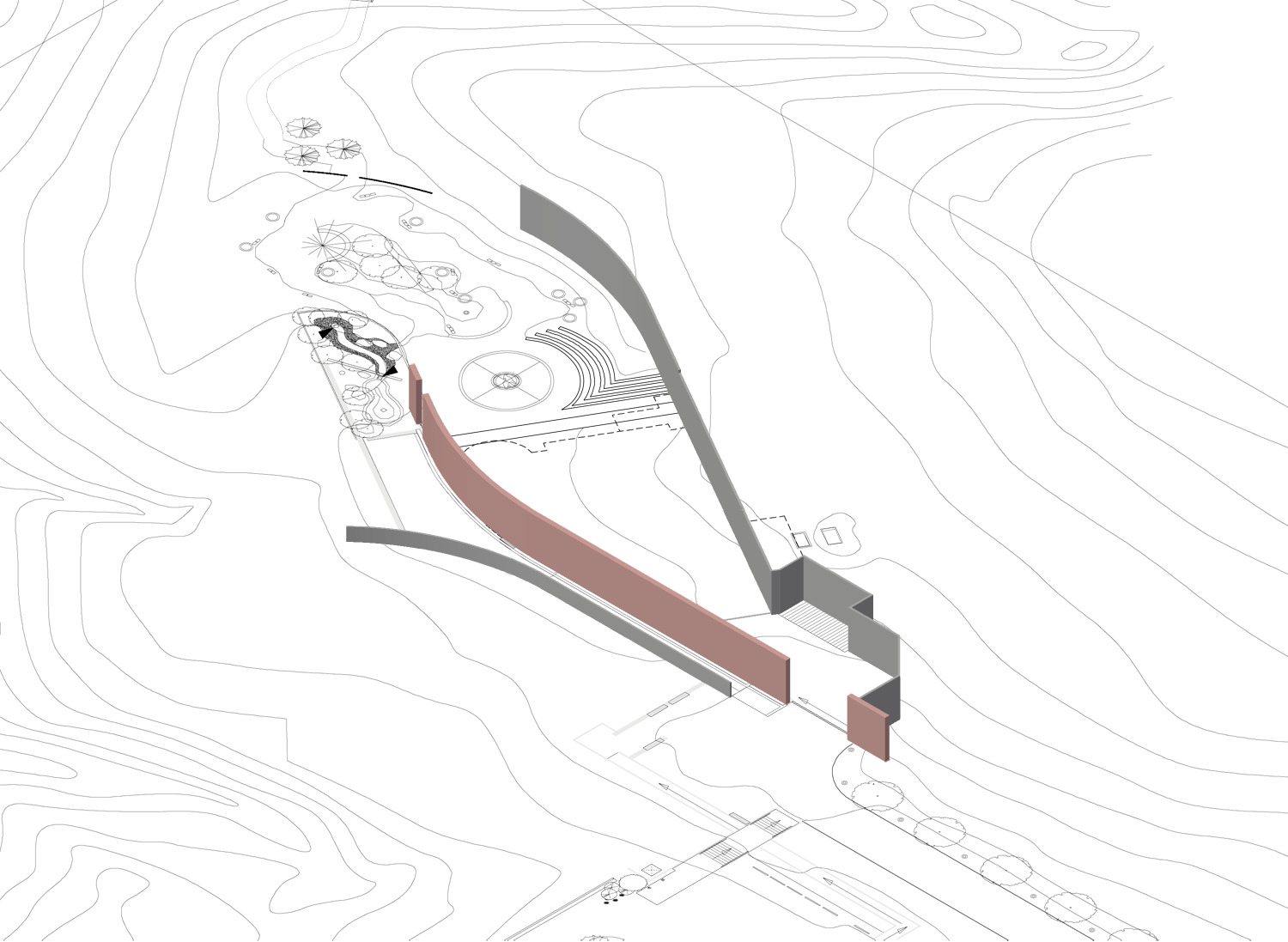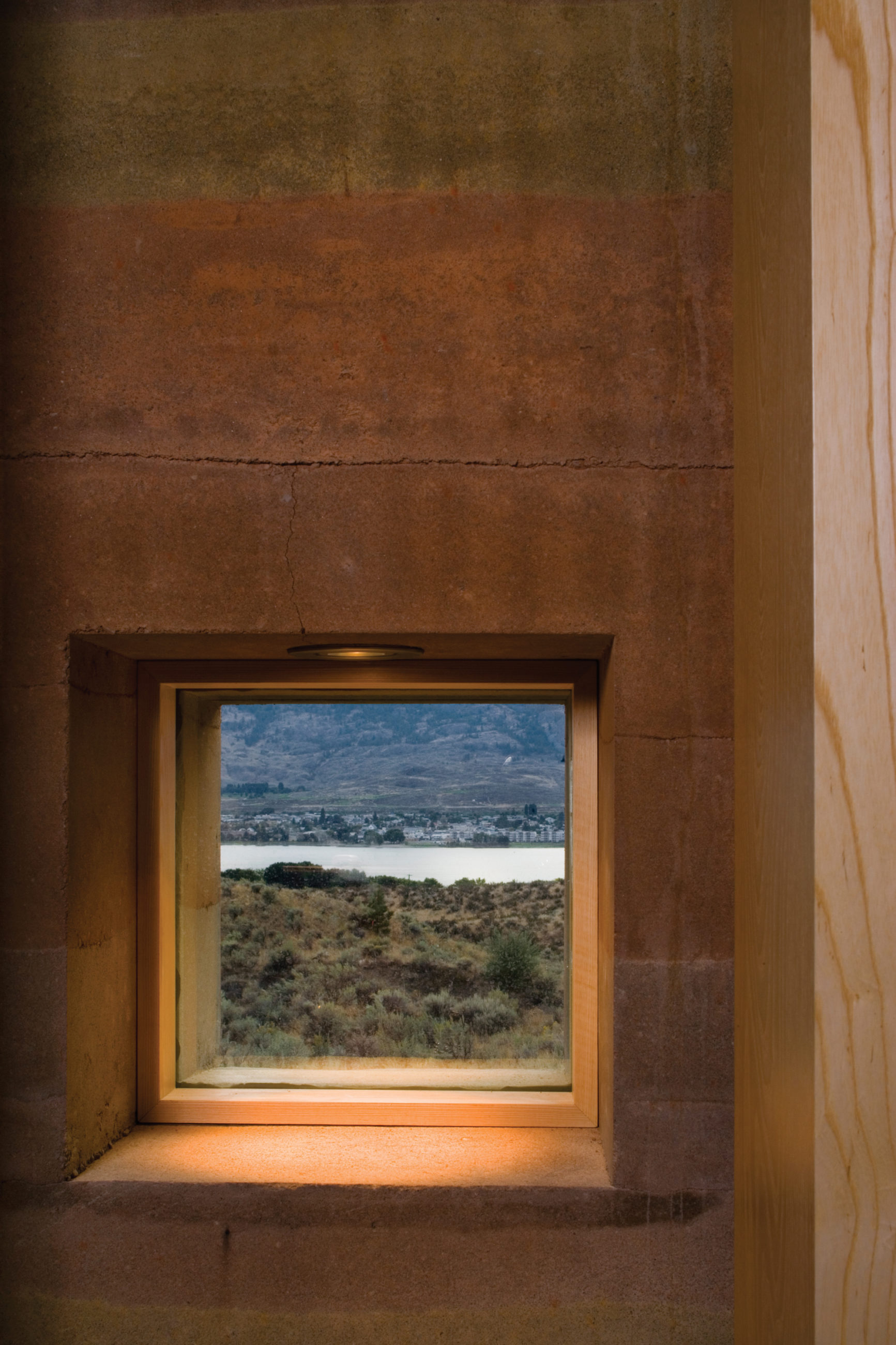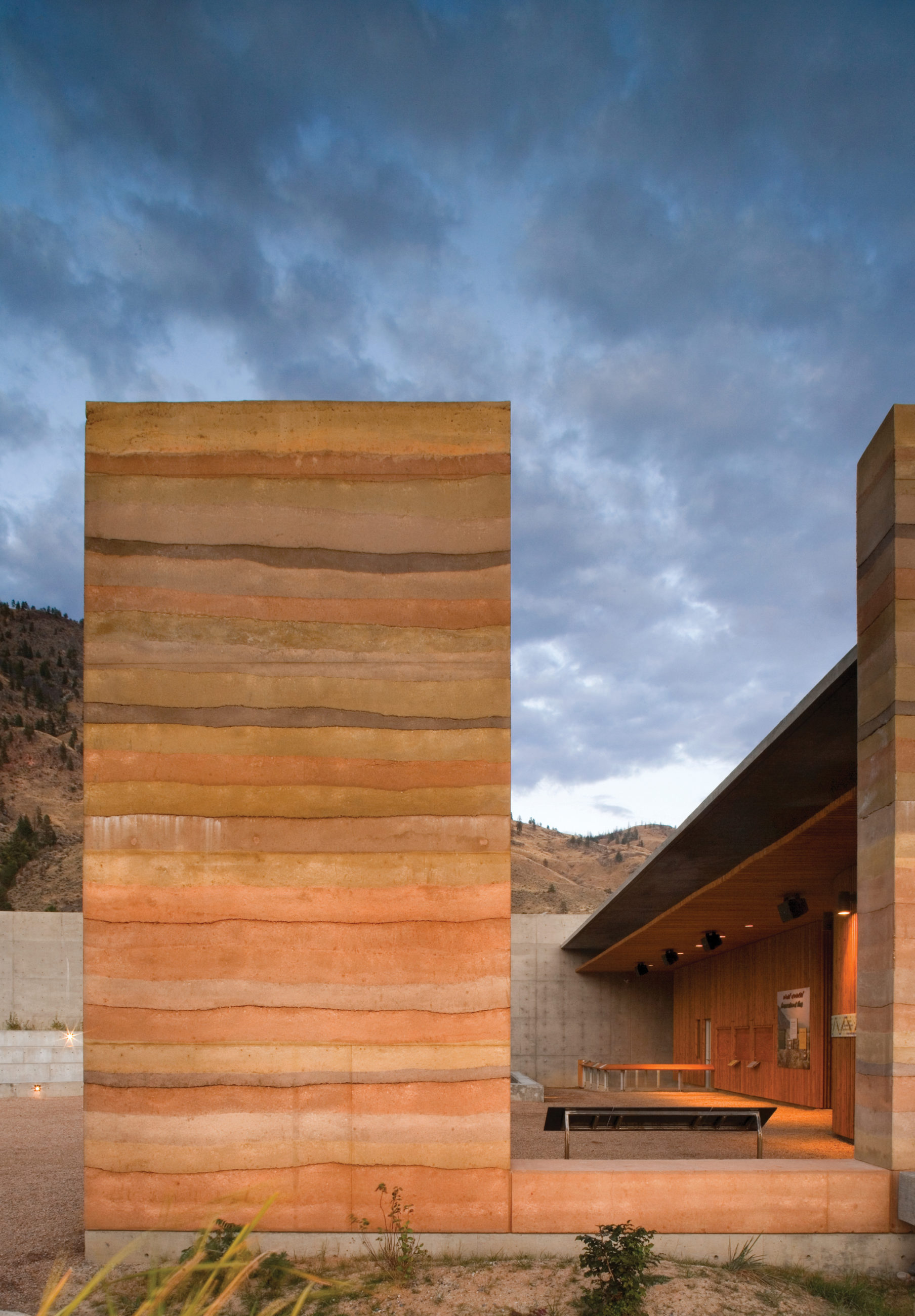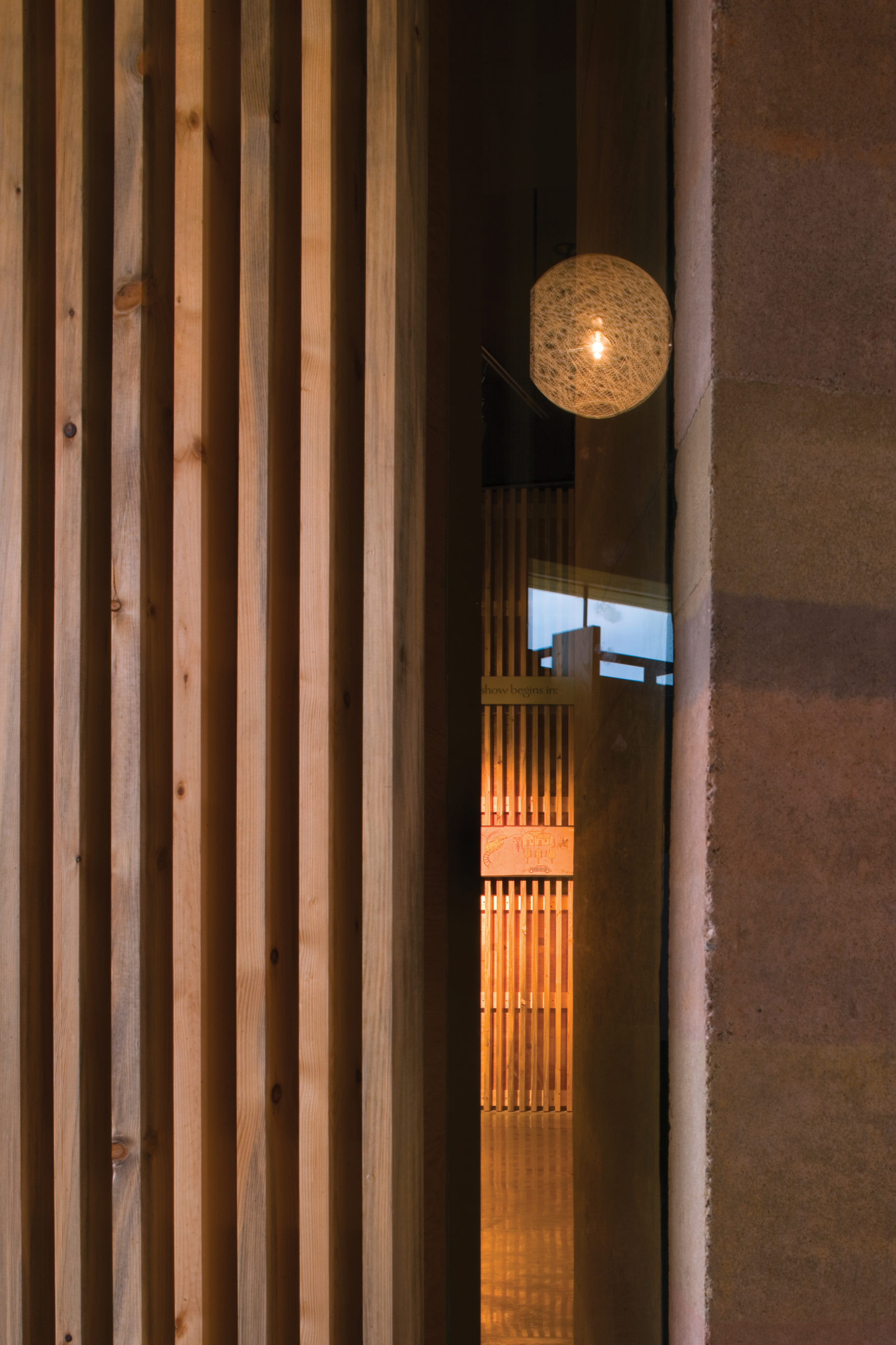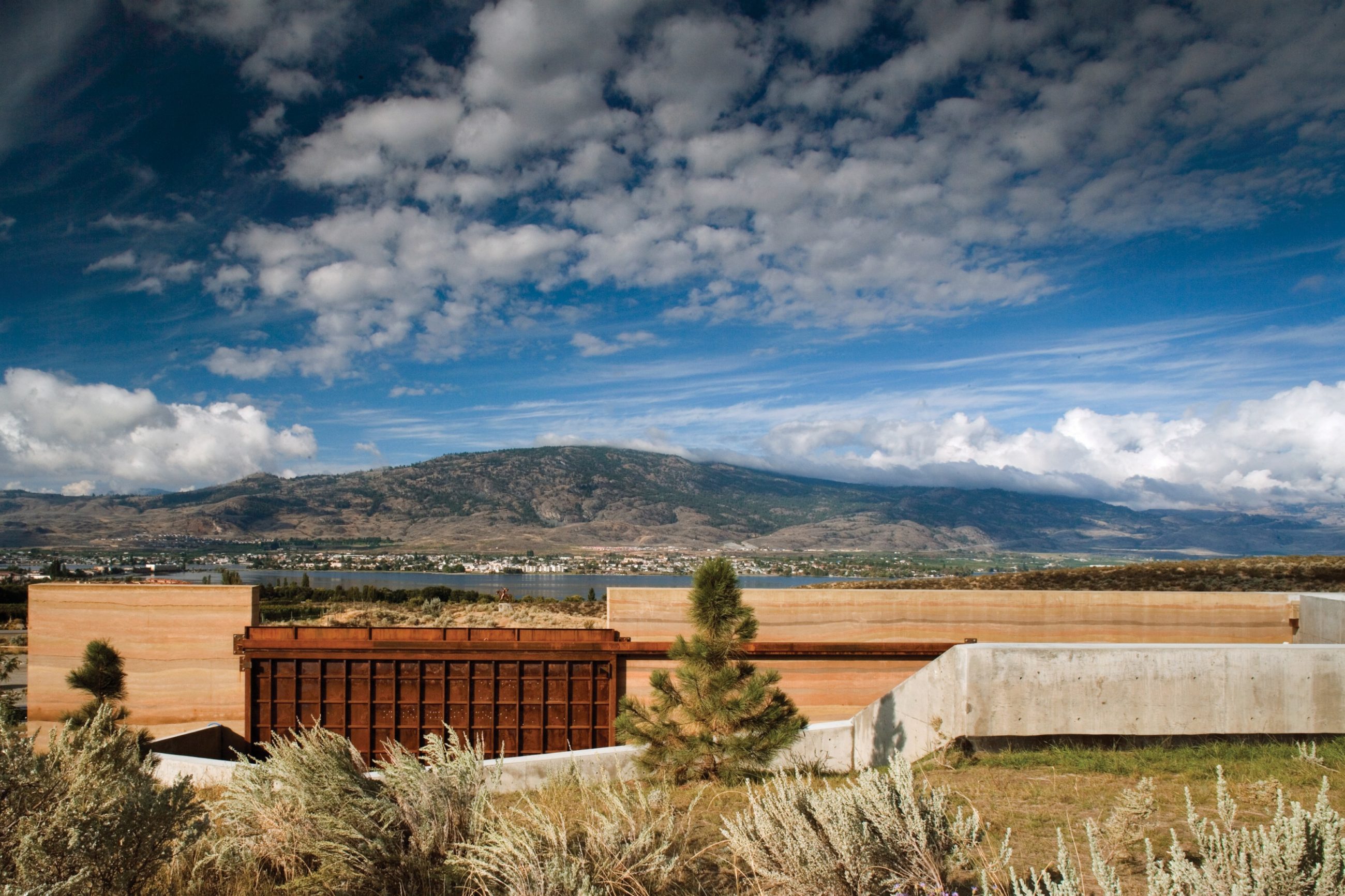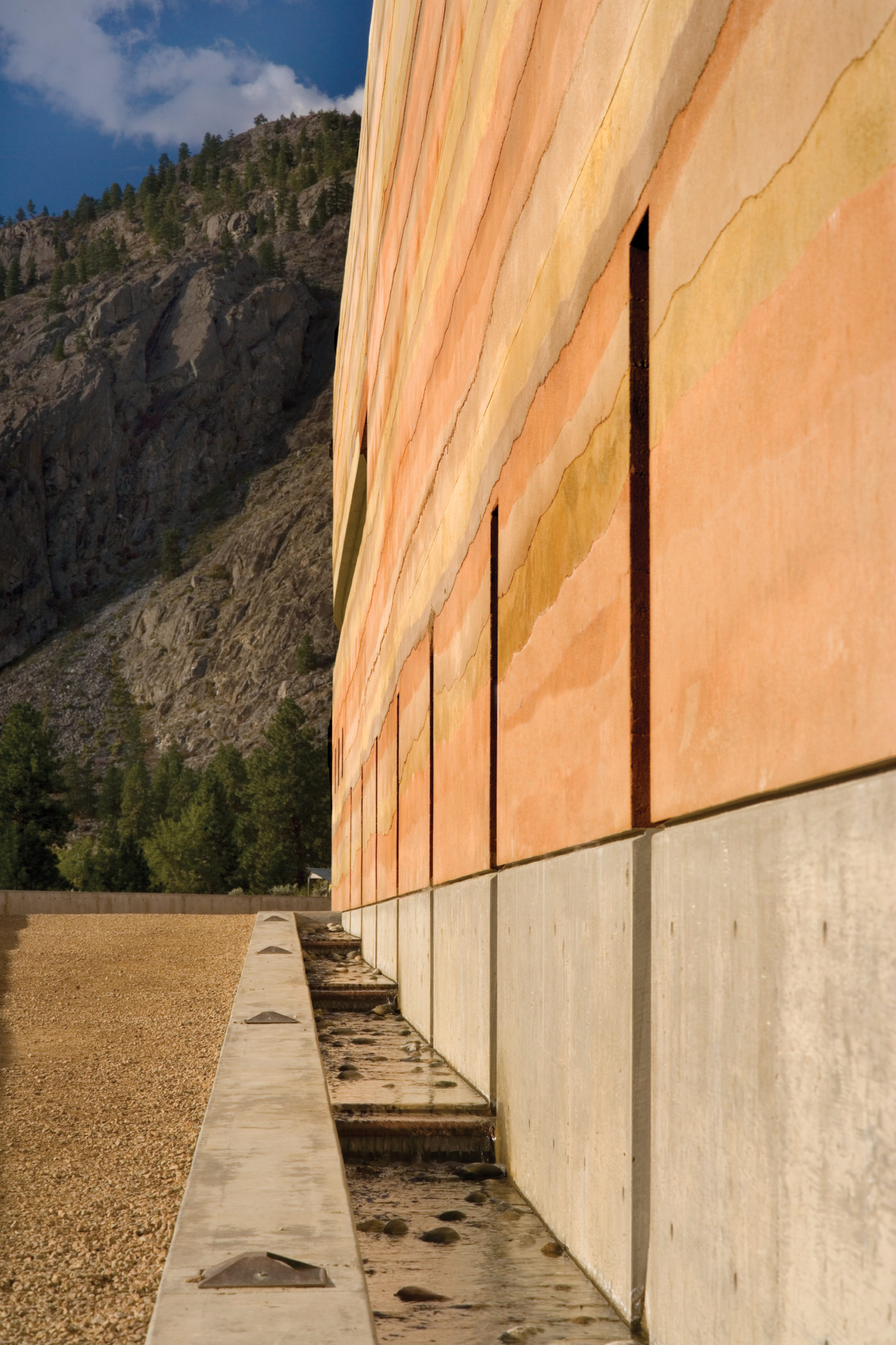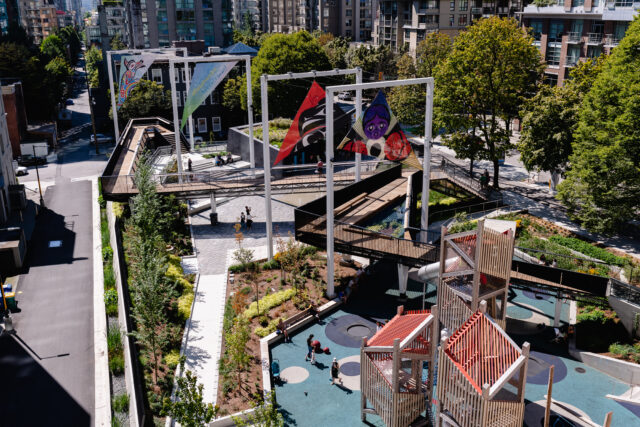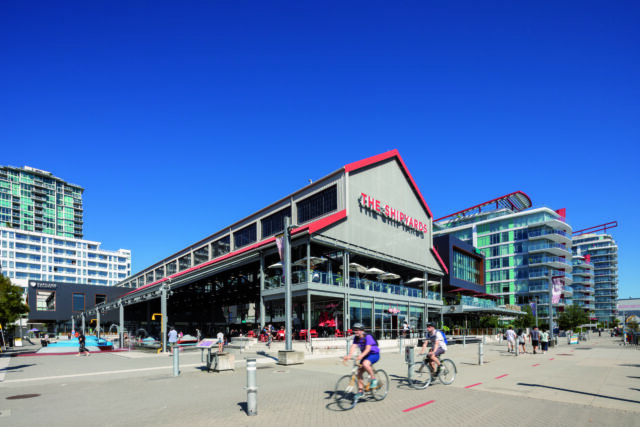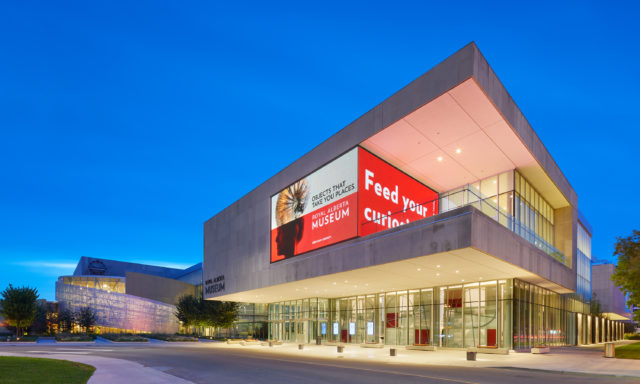Nk’Mip Desert Cultural Centre
A museum baked into Canada's only desert
The Nk’Mip Desert Culture Centre’s design is a specific and sustainable response to the building’s unique context – the spectacular Canadian desert found south of the Okanagan Valley in Osoyoos, British Columbia. This 1,600-acre parcel of land, belonging to the Osoyoos Indian Band, is the largest intact remnant of this unique habitat. The rammed earth building is an extension of the remarkable site. It features indoor and outdoor exhibits that honour the cultural history of the band.
Download PDF
- Location
- Osoyoos, BC
- Size
- 8,342 sq ft
- Client
- Osoyoos Indian Band
- Completion
- 2006
- DIALOG Services
Architecture
- Collaborators
MCL CONTRACTING LTD.
Cobalt Engineering
Equilibrium Consulting
Douglas Welch Design Associates Limited
Aldrich Pears Associates Ltd
BKL Consultants
Greyback Construction
Phillips Farevaag Smallenberg
This contemporary interpretation protects and respects the land while celebrating the legacy of a people.
Functioning in harmony with the site, the Cultural Centre restores a historical divide by passing on knowledge to First Nations youth.
Colours of the rammed earth walls contrast the Valley’s bright blue skies.
Nk’Mip’s design expression pushes the boundaries of First Nations architecture.
Aboriginal design is often visually inferred by times past. Nk’Mip deliberately celebrates the present.
The Osoyoos Indian Band shares an emotional relationship with its land.
This relationship, and the contemporary culture of their people, is what formed Nk’Mip.
Sustainable design approaches and materials speak to these relationships.
The Cultural Centre’s programme systematically supports the passing of knowledge.
Views of the centre are no less spectacular as the sun drops below the horizon.
If the very old will remember, the very young will listen.
Chief Dan George
Evoke DIALOG | Nk'Mip Desert Cultural Centre | Osoyoos, BC A museum baked into Canada's only desert
A beautiful ruin The team wanted to design a building that would one day make a beautiful ruin…
… a building that spoke to the earth, and vice versa
As part of this vision, a natural finish connected the building to the site by using the desert’s materials: earth and pine wood.
Local experts informed on materials and building methods that would protect the sensitive desert ecosystem.
Thoroughly sustainable The desert landscape flows over the building’s green roof and is held back by a rammed-earth wall. Artfully engineered layers carry upwards of 100 tons of weight. Its earth tones hold a thermal resistance of R33, and functions well in temperatures that range from -30 C to +40 C.
The project’s ambitious approach towards sustainable design also includes the use of bluestain pine from trees killed by the pine beetle, low-flow fixtures, waterless urinals, and facilities for the Band’s award-winning rattlesnake research project.
Awards
2007
Inspirational Leadership AwardAboriginal Tourism Association of British Columbia
2007
Lieutenant–Governor of British Columbia Medal of Excellence in ArchitectureArchitectural Institute of British Columbia
2007
Wood Design Green AwardCanadian Wood Council
2008
Category Winner, World Architecture FestivalWorld Architecture Festival
2008
SAB AwardSustainable Architecture & Building Magazine
